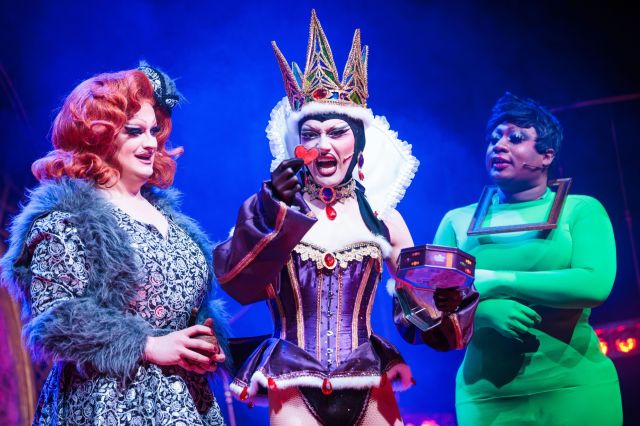Top Five Ways to Help Save the Arts
As the Government’s 2010 Spending Review looms, with cuts to be announced on 20 October 2010, artists and companies across the UK are organising against radical cuts in funding which have been mooted by the Department for Culture, Media and Sport (DCMS).
Preliminary cuts have already been made – notably the surprise abolition of the UK Film Council, as well as the reduction of Arts Council England’s budget of £19 million earlier this year – as Chancellor George Osborne strives to make £6.2 billion of cost savings across Government departments.
Artists generally acknowledge that reasonable cuts and efficiencies can be found and that it is unreasonable for the arts to be exempt against a backdrop of Government spending cuts. However, a number of campaigns have been initiated to spark debate about both the cultural and economic value of the arts and the damage that deep cuts could inflict on the sector.
We’ve taken a look at a number of these, the arguments they’re making and what you can do to add your voice to their efforts.
1. The I Value the Arts Campaign
This campaign, led by the National Campaign for the Arts (NCA), asks members of the public to pledge their support for the arts by registering their email address on a new website (ivaluethearts.org.uk). Not only is this an effective illustration of the strength of public support for the arts, with over 8,000 sign ups since its launch a couple of weeks ago, but the organisers also keep supporters informed of plans that could affect the arts in their area by email. In addition to the website, I Value the Arts is active on Twitter with more than 3,500 followers, many of whom are displaying the campaign’s logo in their profile picture as a badge of their support. I Value the Arts has the backing of a number of industry bodies, including the Society of London Theatre, the Theatrical Management Association and Equity and Audiences UK.
2. Equity’s Save Our Theatre Campaign
Members of actor’s union Equity are using a variety of methods to raise their concerns about cuts they believe will have little impact on Government finances but will be disastrous for the arts industry. The centrepiece of their campaign is a collection of postcards that are being distributed throughout theatres and amongst members of the public, displaying key facts about why arts cuts will be detrimental to the UK. They have also sent an open letter to David Cameron defending the arts against cuts and are urging arts lovers to raise their concerns with their local MP. Equity argue that the arts are more popular and successful than ever, with London theatres generating record box office sales last year, and that the industry makes a significant contribution to the British economy, particularly through tax and VAT they pay to the Exchequer. The campaign hopes to enlist the support of Equity members and the general public to lobby against the proposed cuts.
3. Sign the Online Petition
When the Conservative-Liberal Democrat administration entered Downing Street, they suspended the popular E-Petitions system which had allowed anyone to digitally petition the Prime Minister on matters of concern, with any cause attracting 500 signatures receiving an official Government response. In spite of this, Luisa Summers created an online petition titled ‘Save the Arts’ calling on Culture Secretary Jeremy Hunt “not to slash arts funding and risk destroying this long-term achievement and the social and economic benefits it brings to all.” At the time of writing, Summers has attracted signed over 43,000 people since her petition was published on 19 August 2010 with David Cameron agreeing to debate arts funding in parliament if over 100,000 people show their support. Click here to sign the petition – before 20 October 2010!
4. Join the Conversation About the Future of Arts Funding
Led by digital innovator Marcus Romer, artistic director of York-based Pilot Theatre, the Arts Funding Ning is a 900-strong online community where those involved in the arts can discuss current issues in funding that affect them and engage in debate about challenges and solutions for the sector. Romer believes that a joined-up and well-informed arts sector will enable the industry to “creatively and intelligently” confront the challenges that it faces. Anyone can join the community and take part in the conversation, which also continues through an engaged and vocal Twitter following using the #artsfunding hashtag.
5. The Save the Arts Campaign
Over a hundred leading artists including Damien Hirst, Anish Kapoor and Tracey Emin have joined the Save the Arts campaign which seeks to make a case against proposed cuts in Government funding. Save the Arts was recently launched with the release of a video animation by artist David Shrigley highlighting the potential effect of cuts which has received 100,000 views on Youtube since it was uploaded on 9 September 2010. The campaign is being organised by the London branch of the Turning Point Network, a national consortium of over 2,000 arts organisations and artists dedicated to working together and finding new ways to support the arts in the UK.












